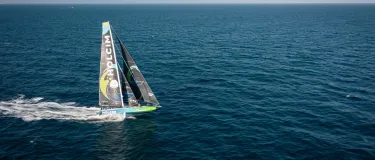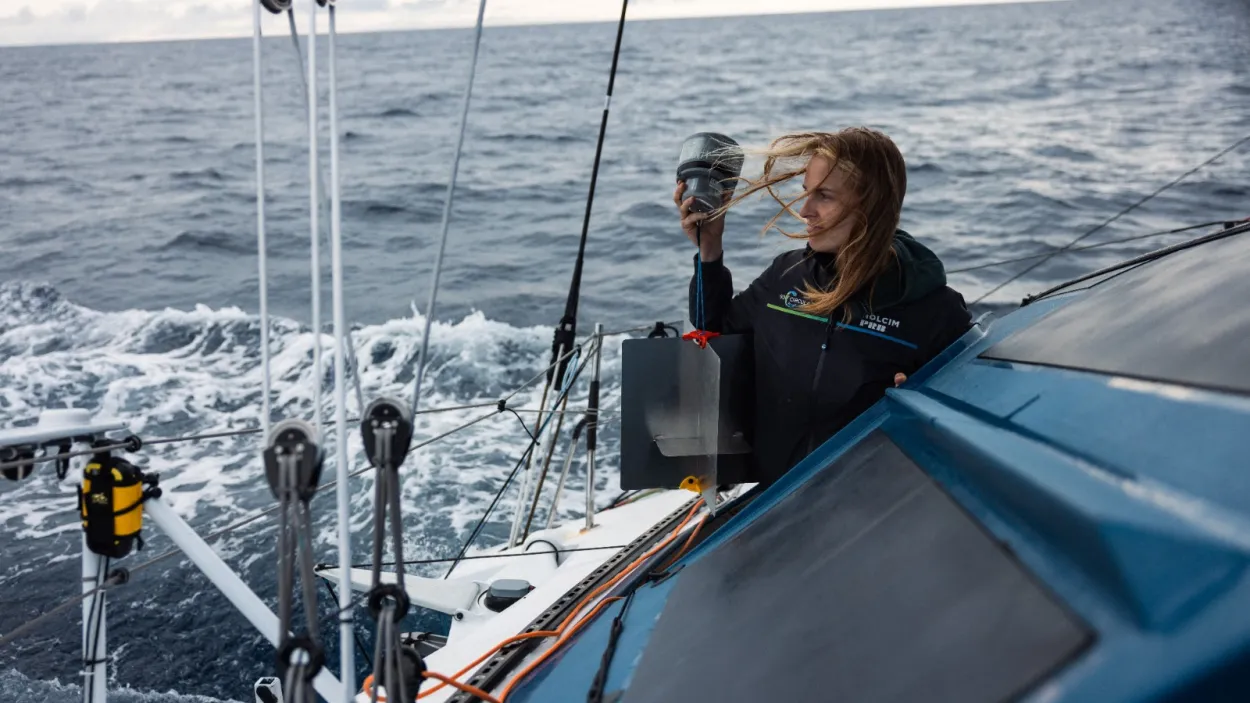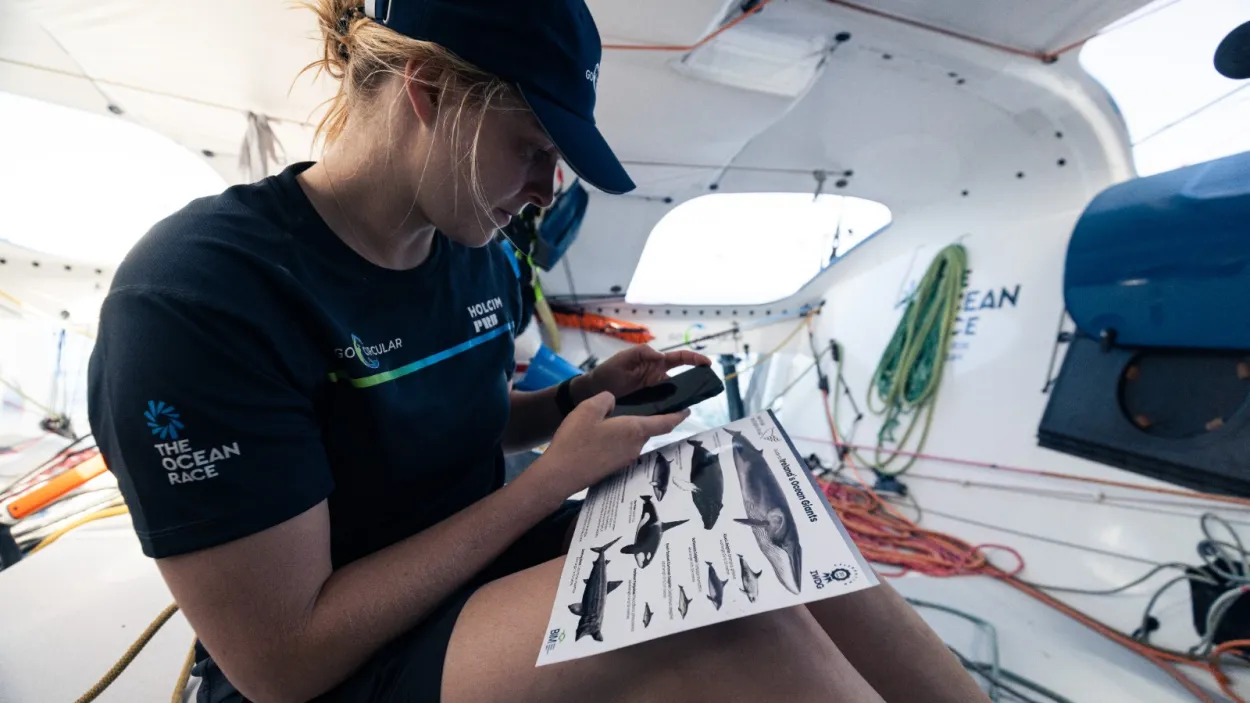Team Holcim-PRB Wins the First-Ever Sustainability Award in The Ocean Race Europe
Team Holcim-PRB has won the first-ever Sustainability Award of the inaugural Racing for the Ocean Teams Challenge during The Ocean Race Europe 2025. This award recognizes the team’s outstanding commitment to protecting the ocean while competing at the highest level of the sport.
The 'Racing for the Ocean Teams Challenge' was created to highlight the true purpose of The Ocean Race: racing for the ocean. The challenge not only promotes sustainability in high-performance sport but also generates valuable scientific data to advance ocean research. At the heart of this mission, Team Holcim-PRB led by example.
The award was presented on Saturday, 20 September, at the official The Ocean Race Europe award night in Boka Bay, Montenegro. The trophy was handed to the entire Team Holcim-PRB by Vanessa Butani, Head of Global Sustainability at Volvo Cars.
Navigating with Purpose: Sustainable Operations at Sea and on Shore
The 'Racing for the Ocean Teams Challenge' was divided into two parts. First, an impact assessment was carried out by an international jury of sustainability leaders including Pascal Lamy, Catherine Chabaud, Alexandra Rickham, Vanessa Butani, and Jazz Turner.
Team Holcim-PRB is committed to sustainable practices both on land and at sea. The team works to reduce its CO₂ footprint, for example by optimizing travel, and champions circularity throughout the race and at its base. They pioneered waste separation and the use of circular products in the offshore sailing class, recycling ropes, sails, cables, and 3D-printed parts into new raw materials. Old sails and equipment were also donated for reuse in other sailing categories.
At sea the sailors continued to collect scientific ocean data that helps deepen our understanding of ocean health. During The Ocean Race Europe 2025, the team collected vital ocean data to support climate research, building on Nicolas Lunven’s earlier efforts in the Vendée Globe, where he gathered 1.8 million data points from remote ocean regions. This edition focused on generating new insights into crucial coastal waters.
Waves of Impact: Engineering Reefs, Engaging Communities
Secondly, teams could gain recognition for the initiatives and activations they carried out in the social and environmental field during the season. Projects were judged against five criteria: outreach and engagement, positive impact, empowerment, scalability, and innovation.
Team Holcim-PRB made a lasting contribution to ocean health by donating an artificial reef to the city of Kiel. Built with Holcim’s innovative bioactive and CO₂-reduced materials, the reef revitalized a former munitions dump site in Friedrichsort and now supports local biodiversity.
Alongside ocean science, Team Holcim-PRB also advanced human science. Partnering with HATCH Systems, as they carried out groundbreaking studies on the physical toll of offshore racing, revealing impacts comparable to astronauts returning from space, knowledge valuable for both sport and science.
But these scientific insights only matter if they inspire action. That’s why the team engaged hundreds of children, students, and young professionals through citizen science water labs, school visits, and career events across Europe. These initiatives brought ocean research to life, highlighted the importance of circularity, and opened pathways to future careers in sustainability. Representation was also key: with a female skipper and women in leadership across technical, communications, and logistics roles, Team Holcim-PRB set new standards for diversity in the sport.
All of these efforts were made possible thanks to the collective work of the entire Holcim-PRB team, in strong collaboration with the IMOCA class, The Ocean Race’s Impact team, and a renowned network of science partners. Winning the ‘Racing for the Ocean Teams Challenge’ shows that sustainability can be integrated meaningfully into high-performance sport, setting a new benchmark for the industry. By combining Purpose, People, and Performance, the team has demonstrated what is possible when sport, science, and circular innovation come together, sailing not just to win races, but to build a more sustainable future.








